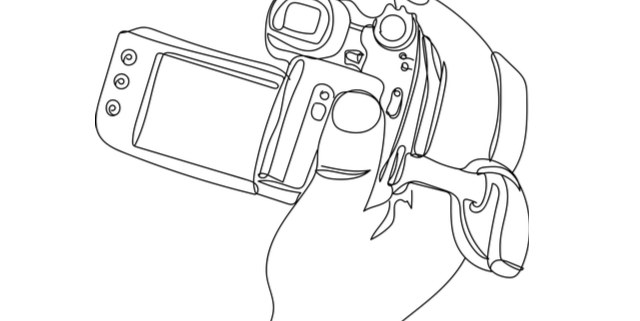Back and Forth.
This past weekend, my daughter Kate discovered an old camcorder in the back of our coat closet—the true relic of a time gone by. In it was still a tape, with an array of footage from long-ago vacations, work events, and right in the middle of it all, my footage from the very chilly January 2009 inauguration of President Barack Obama, taken from the balcony of a nearby office building where Brian and I stood to watch that day in history unfold.
The video was grainy, and the audio even worse, but the possibilities of what could come from that moment were palpable.
It was a true time-capsule-of-a-moment, and an ironic one to experience on Independence Day in the U.S. Finding that video provided an interesting comparison to the here and now of our country: from the feelings we were expressing as a nation on that day, against the feelings we see being expressed today: anger, concern and grief over the state of our nation; the state of its laws and governing bodies; the divides about the state of our democracy as we come into yet another election season.
While that video literally took me back in time, I reflected on how many times I’ve heard people remark on the U.S “going backwards” in these past few years, with a loudening chorus in recent weeks. I reflected on how many people I hear questioning their nation, and those who run it. The rally cry of recent weeks, “we won’t go back” only further reinforces the “matter of time” mentality that we all find ourselves in, and how little power it can feel like we have in these pivotal moments of history.
But that’s where looking back can be a good thing.
Here’s how Darren Walker raised the emotions of it in July 4th’s New York Times:
Anger and grief are not unreasonable. I share the outrage and despair that many appropriately feel about America’s backsliding. But this cannot be a reason to cede our patriotism. Our ancestors and elders, today’s social justice leaders on the front lines, all have sacrificed too much for us to give up on America now…And patriotism can take as many forms as there are perspectives. Love of country can mean placing your hand on your heart during the national anthem or kneeling on one knee. It can mean serving as a police officer or a first responder to keep our neighborhoods safe, or protesting in those very same streets. The declaration itself was an act of defiant resistance.
Seeing where we are, and where we are going, must always be informed by moments of the past: the hopeful masses and the defiant resistance. We need that history to inform the future, including the footage we might wish to replay, and the footage we would avoid seeing again. But there’s no denying what we can learn from all of it: we learn who we are, who we’re not, and who we’re becoming, over time. And even when it’s the worst thing we can imagine, going back can sometimes give us the momentum we need to swing further forward.
Walker’s op ed gives further food for thought:
However we give voice to our patriotism, let’s step away from the extremes and from the edge, away from the sanctimony and certitude. Let’s build longer bridges, not higher walls. The cost of the alternative is greater than any of us can bear.
We are in a time-capsule-kind-of-moment. And only time will tell how it will play out. But going back to that grainy footage of 2009 once more may offer a reminder on context: Who we were then isn’t who we are now, but we owe it to who we are becoming to take one step in front of the other, every day, toward progress for all people.
This is week 27 of the Finding The Words column, a series published every Wednesday that delivers a dose of communication insights direct to your inbox. If you like what you read, we hope you’ll subscribe to ensure you receive this each week.





 Check out our new
Check out our new